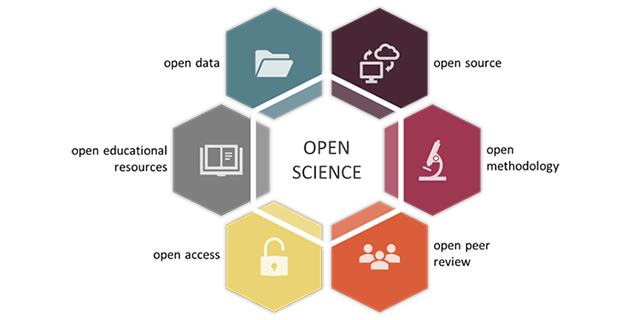
By
Alexander Koiter
January 2024
Print Version
What you need to know
In many respects, data collection has gotten easier, cheaper, and more sophisticated over the last few decades, leading to large and complex data sets. Coupled with increasingly complex statistical techniques, doing open and reproducible science is more important than ever. Over the past decade, I have become increasingly interested in making my own science more open and reproducible. Not only has this helped me in my own work, but it has also made it easier for others to help me, and for me to help others, do great science.
What is open and reproducible science?
Open and reproducible science is all about how we do science. From lab/field data collection to dissemination, there are opportunities in each step to do this in ways that promote integrity, trust, community, sharing, accessibility, as well as equity, diversity, and inclusion (EDI). Open science is about the practice of making the data, methods, and interpretation more available, accessible, transparent, and reproducible. Reproducible science allows you and others to use the same initial data and get the same exact results. Reproducibility is not about ensuring the correctness of the results but rather being transparent and understanding exactly what was done. A study can be reproducible and still be wrong.
Why this is important
Reproducible science allows others to evaluate the data, analyses, and models on which conclusions are drawn. This includes having a complete record of each step, including data acquisition, data wrangling/summarizing, data analysis, and creating figures. There are often lots of small but important decisions and details that are important to document (e.g., how were missing values dealt with?). A reproducible workflow also helps you revisit your own work and makes it easier to add additional data, incorporate a suggestion, and write the methods section to your thesis/publication.
Open science is important for many different reasons, but ultimately, it makes science more robust, reliable, and friendly. Doing science in a manner that makes the data, analyses, and peer review more open allows scientists to build on existing work more easily (detailed methods are needed) and synthesize knowledge from across the globe (accessible data). It also makes working with others easier and often results in better collaboration (sharing is caring) and improved collegiality (transparency). Lastly, open science can positively impact EDI as it can reduce barriers to participation in science (free and open source software) and help build communities that invite and support diverse perspectives.
Resources to make your science more open
Reproducible data analysis requires a complete record of what has been done. A programmatic approach, such as using R (free & open source), can be a great way to help ensure analyses are reproducible and easy to share. The learning curve can be steep, but there are great resources available (R for Data Science, Data Carpentry) and helpful communities (rOpenSci, R-Ladies).
Collaborating with others using a centralized location for data, analysis, and writing is key (no more back-and-forth emails!). There are many different approaches, from shared cloud storage (SharePoint) to services like Open Science Framework to Github repositories.
Dissemination of your science in an open and reproducible way is also important. This can include using journal supplementary materials for additional method details, public data repositories, publishing in journals that are open access and have a transparent peer review process (sign your reviews), and working with your library.
Working towards open and reproducible science
One size does not fit all. There is no singular best, and there are lots of different approaches and ways you can work towards making your own science more open. Find what works best for you and your community. Please remember that it is not an all-or-nothing situation. Anything you do that makes your science more open, no matter how small, is fantastic and worthwhile! This is not easy, and it takes time and effort to learn and implement open science practices (I still have a long way to go). There are lots of great supports and resources available. Making your science open can make you feel vulnerable as it makes mistakes more likely to be found; this is not a sign of weakness—mistakes happen. This is an opportunity to learn and make science stronger.
About the Researcher
Keywords
- data analysis
- dissemination
- open science
- reproducibility
Publications Based on the Research
The link to recent presentation can be found here.
Editor: Christiane Ramsey
Read more BU Research
Research at Brandon University follows comprehensive policies designed to safeguard ethics, to ensure academic integrity, to protect human and animal welfare and to prevent conflicts of interest.

